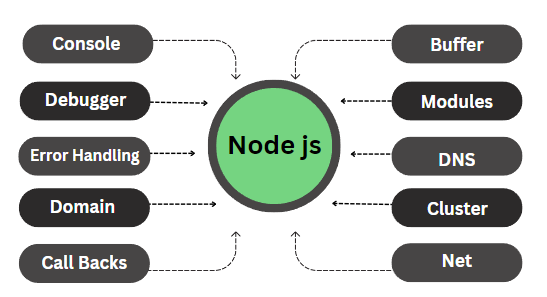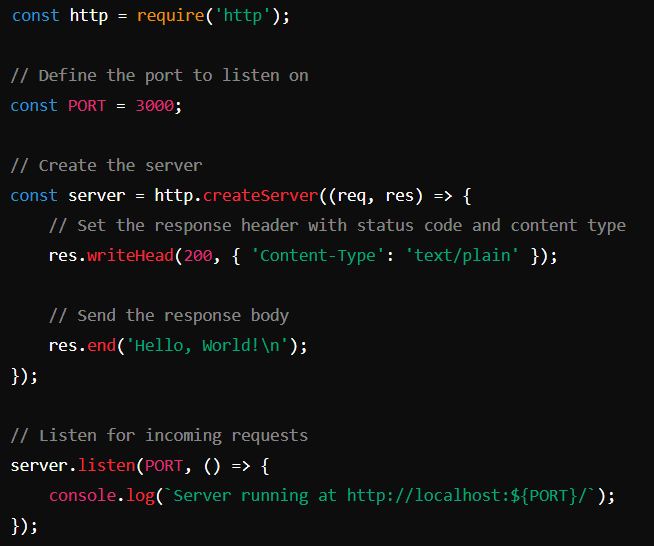What is Node.js ?

Node.js is an open-source, cross-platform JavaScript runtime environment that executes JavaScript code outside of a web browser.
It was created by Ryan Dahl in 2009, with the primary aim of building scalable network applications.
How Node.js works ?
Node.js works by using a single-threaded event loop that uses a non-blocking I/O model. It runs on the V8 JavaScript engine, which compiles JavaScript to machine code for fast execution. The event loop allows Node.js to handle multiple concurrent operations by assigning I/O tasks to the system. When I/O operations complete, their callbacks are queued for execution. This approach makes Node.js highly efficient and suitable for building scalable, real-time applications.
Advantages of Node.js
-
1. Scalability
Node.js's allows multiple threads to run simultaneously and interact with each other. It has a cluster module that is responsible for load balancing for every CPU-bound task.Node.js child processes operate quickly and interact with each other to share the same origin. -
2. Community Support
Node.js has a large, active community of developers. Many of the world’s most well-known technology companies, including Amazon, Google, Facebook, and Netflix, are strong supporters of the node.js community. They’ve contributed much by creating several open-source alternatives. -
3. Real-Time Applications
It is ideal for real-time applications, such as chat applications, live updates, and collaboration tools, because of its ability to handle WebSocket connections. -
4.Creating Microservices
Microservices are small, independent services that work together to form an application. Node.js's lightweight nature and efficient handling of network communication make it suitable for creating and managing these microservices. -
How to create web server in Node js ?
Basic code example to create server in Node js.
-
JavaScript

Output
